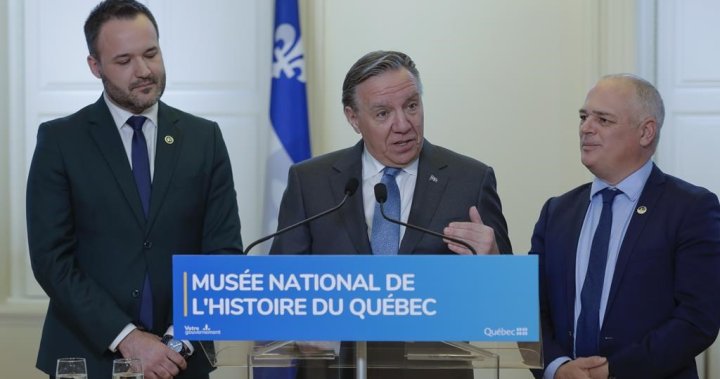The Quebec government’s plan to open a new museum dedicated to the history of the Québécois nation has sparked controversy among historians and Indigenous groups. Premier François Legault faced criticism for suggesting that Quebec’s history began with the arrival of French explorers in the 16th and 17th centuries, potentially erasing the contributions of Indigenous peoples to the region’s history. History professor Steven High emphasized that history is a political subject that raises questions about whose stories are included, where history begins, and who is excluded from the narrative.
In response to the backlash, Legault clarified that the new Musée national de l’histoire du Québec, scheduled to open in 2026, will focus on the history of the French-speaking Québécois nation. He mentioned that the museum would not exclude Indigenous people, but would primarily highlight the history of the French-Canadian and Québécois populations. The premier also expressed hope that the museum would inspire pride in Quebecers through exhibits celebrating prominent figures such as artists, authors, athletes, and business leaders. However, High criticized this approach as a return to traditional “great man” history that lacks critical examination and inclusivity.
Chief Ghislain Picard of the Assembly of First Nations Quebec-Labrador criticized the government for overlooking Indigenous perspectives in the museum planning process. He noted that Indigenous people and their contributions must be acknowledged in any comprehensive telling of Quebec’s history, as their presence predates the arrival of European colonizers. Picard highlighted the importance of including Indigenous voices in the development of the museum’s content to ensure a more inclusive and accurate representation of Quebec’s history.
Historian Éric Bédard, who was involved in Legault’s initial museum announcement, faced backlash for his comments suggesting that the history of Quebec begins with writing and that Indigenous people represent the prehistory of the region. Professor Ronald Rudin pointed out that focusing solely on written history can lead to the exclusion of marginalized groups, such as women, working-class individuals, and Indigenous communities whose stories may not have been documented in writing. Rudin emphasized the importance of acknowledging oral history and diversifying perspectives to present a more comprehensive and accurate understanding of Quebec’s past.
The unfolding debate surrounding the new museum highlights the complexities of narrating history and the challenges of balancing different perspectives and voices. The controversy underscores the ongoing tensions between celebrating traditional narratives of triumph and heroism and acknowledging the darker, more nuanced aspects of history that include colonization, oppression, and the erasure of Indigenous peoples. As discussions continue, there is an opportunity for the Quebec government to engage with Indigenous communities, historians, and stakeholders to ensure that the new museum reflects the diversity, complexity, and richness of Quebec’s history. By incorporating multiple perspectives and voices, the museum can strive to offer a more inclusive and accurate portrayal of the province’s past that resonates with all of its residents.


